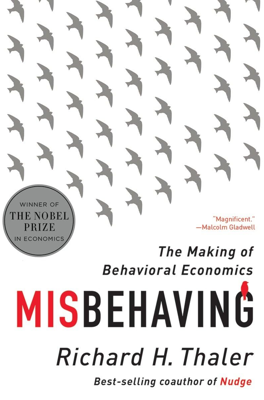Fruit Flies, Icebergs, and Negative Stock Prices
Exploring Market Anomalies
The violation of the law of one price is illustrated through an analysis of 3Com and its subsidiary Palm. When 3Com announced the divestiture of Palm, expectations were that the market value of 3Com would increase due to the perceived greater value of Palm as an independent entity. However, despite the increase in share value prior to Palm's IPO, the market valuation of 3Com following the IPO suggested a negative value for 3Com's remaining businesses, contradicting financial logic that no company can hold a negative value.
The "Impossible" Profit
The siloed trading data indicated a stark aberration from expected market behaviors — 3Com's market value fell to imply that its ongoing operations were worth less than nothing, a blatant impossibility in finance where the theoretical floor for a stock price is zero. This case presented a clear refutation of the efficient market hypothesis, which would assert that all components of a stock's value should be accurately priced by the market.
Required Market Conditions and Mispricings
This pricing anomaly persisted due to specific conditions: the overwhelming enthusiasm for Palm as a "pure play" in the tech field led to irrational overvaluation, while the inability of the market to undertake arbitrage effectively due to a shortage of Palm shares actionable for short selling led to this mispricing persisting for months.
Historical and Comparative Anomaly Analysis
The discussions connect this phenomenon to similar historical occurrences, such as Benjamin Graham’s successful arbitrage of DuPont and General Motors stocks in the 1920s, and the more prolonged, yet also arbitraged mispricing of Royal Dutch Shell’s dual-listed stocks. The limitations of arbitrage, as exposed in these examples, reveal that even when market mispricings are apparent, they cannot always be efficiently corrected by so-called “smart money” or rational investors.
Behavioral Implications and Policy Considerations
The persistent mispricing challenges the foundational economic theories posited by the efficient market hypothesis and underscores the susceptibility of markets to behavioral biases and informational inefficiencies. This suggests important implications for regulators and policymakers, indicating that reliance on market self-correction even in the presence of clear economic anomalies may be misguided. Preventive measures may be needed to mitigate the risks associated with these market inefficiencies, particularly in preventing resource misallocation during economic bubbles.
In conclusion, the analysis of 3Com and Palm serves as a crucial case study illustrating the limitations of traditional financial theories when confronted with real-world market behaviors, urging an adaptation of policies and strategies that accommodate potential market irrationalities.
